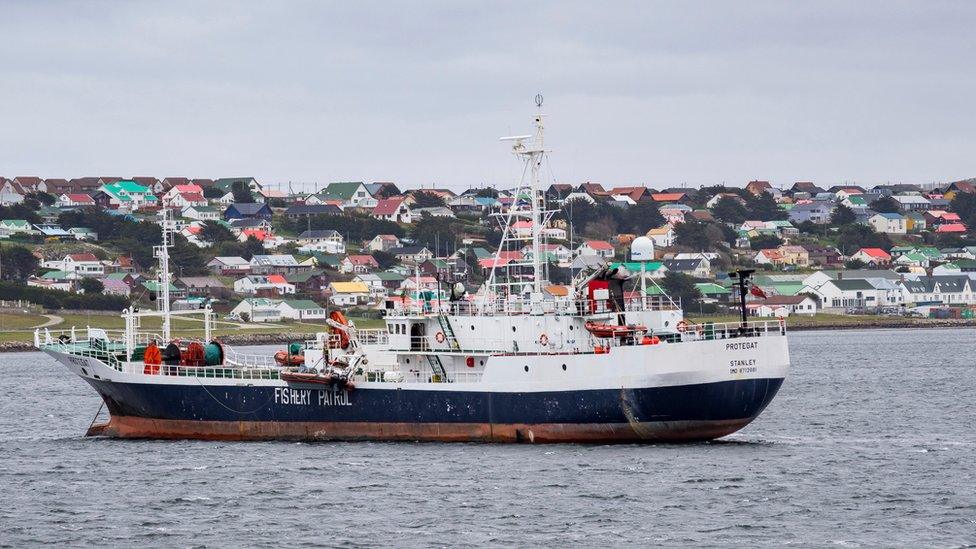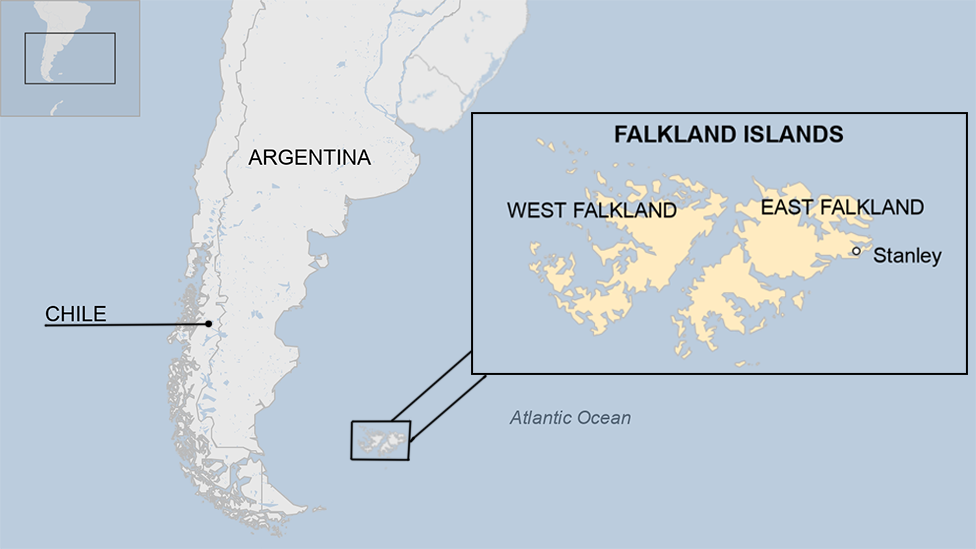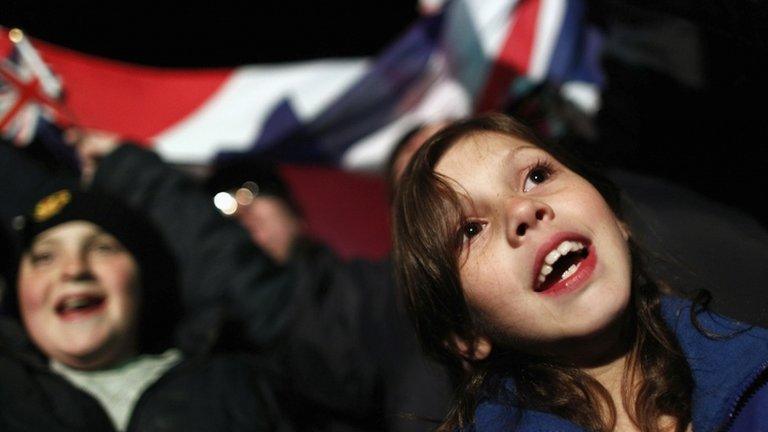Rishi Sunak hits out at EU calling Falklands Islands 'Islas Malvinas'
- Published

Downing Street has criticised the European Union after it used the name Argentina uses for the Falkland Islands in an official document.
A statement issued after a summit with Latin American countries this week referred to the contested territory as "the Islas Malvinas/Falkland Islands".
Prime Minister Rishi Sunak's spokesman called it a "regrettable choice of words".
But the EU insisted it was not taking a position on the sovereignty dispute.
Argentina has long claimed sovereignty over the Falklands, a British overseas territory in the south-west Atlantic Ocean. The two countries fought a war over the issue, after Argentine forces invaded the islands in 1982.
Earlier this year, Argentina pulled out of a co-operation deal signed in 2016 and has been pushing for talks on sovereignty.
The reference to "Islas Malvinas" came in an EU statement, external issued following a Brussels summit with CELAC, a group of 33 Latin American and Caribbean countries that includes Argentina.
It is the first summit the organisation has held with CELAC since the UK left the EU in early 2020.
It read: "Regarding the question of sovereignty over the Islas Malvinas/Falkland Islands, the European Union took note of CELAC's historical position based on the importance of dialogue and respect for international law in the peaceful solution of disputes".
Asked by British reporters about the use of "Malvinas", Mr Sunak's spokesman replied: "The prime minister's view is that it would have been entirely unacceptable for the EU to question the Falkland Islanders' right to decide their own future.
"To be clear, the Falkland Islands are British, that was the choice of the islanders themselves," he said, noting the results of a 2013 referendum where they voted overwhelmingly to remain a UK territory.
'Argentine triumph'
"The EU has rightly now clarified that their position on the Falklands has not changed after their regrettable choice of words," he added.
In a tweet, Foreign Secretary James Cleverly said Argentina and the EU should "listen to" the "democratic choice" of Falkland Islanders.
The Argentine foreign ministry has celebrated the reference to the sovereignty issue as a "triumph of Argentine diplomacy", a sentiment echoed in some Argentine media reports.
But unlike media in the UK, neither the country's media nor its government has honed in on the name used for the contested territory in the summit's final declaration.
They have instead focused on the fact that the "Malvinas question" was included at all as the Falklands dispute was not mentioned in statements after the last full EU-CELAC summit in 2015, or the inaugural summit in 2013.
There are reports that the UK mounted a diplomatic effort to dissuade the EU from mentioning the dispute in the final statement.
'Hugely disappointed'
However, the EU has insisted it has not changed its position on the dispute.
Foreign affairs spokesman Peter Stano added it was not able to "express any position" because its 27 member states had not adopted a collective view on the matter.
"The EU is always ready to listen to the position of our partners and take note of that," he added.
"In that spirit, the EU has taken note of the interest shown by Argentina and the CELAC states in addressing the question of the Falklands/Islas Malvinas."
In a press release, the Falklands Islands government said it was "hugely disappointed" by the language used in the EU's statement.
Teslyn Barkman, deputy chair of the territory's Legislative Assembly, urged EU countries to "respect the wishes of the Falkland Islanders and refer to us by our proper name".
The Falklands were the subject of a brief but bitter war between Britain and Argentina in 1982, after Argentine forces landed on the islands to stake a territorial claim.
The conflict lasted 74 days - with 655 Argentinian, 255 British and three Falkland Islander deaths - before British forces regained full control on 14 June 1982.
Related topics
- Published7 September 2023

- Published12 March 2013
